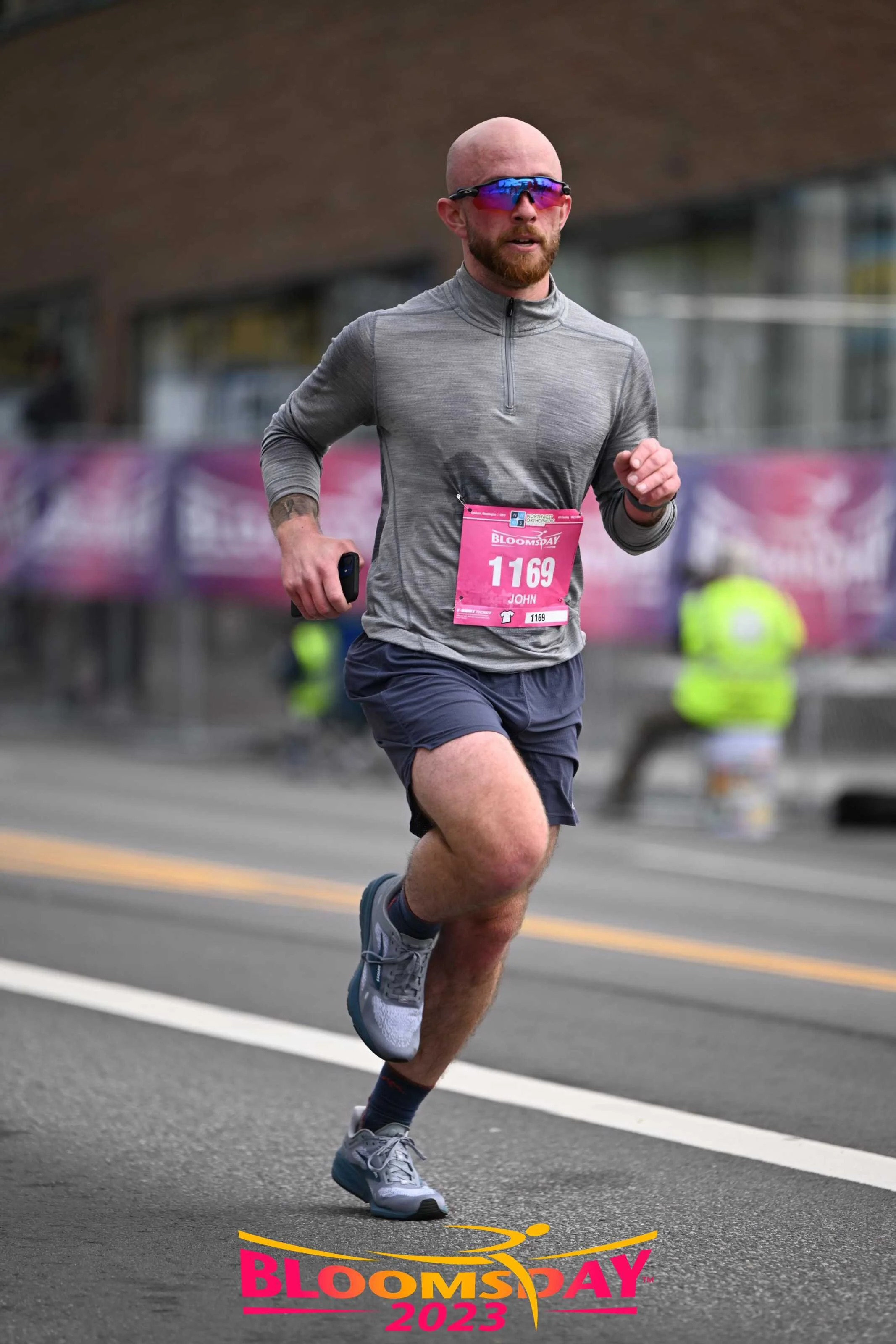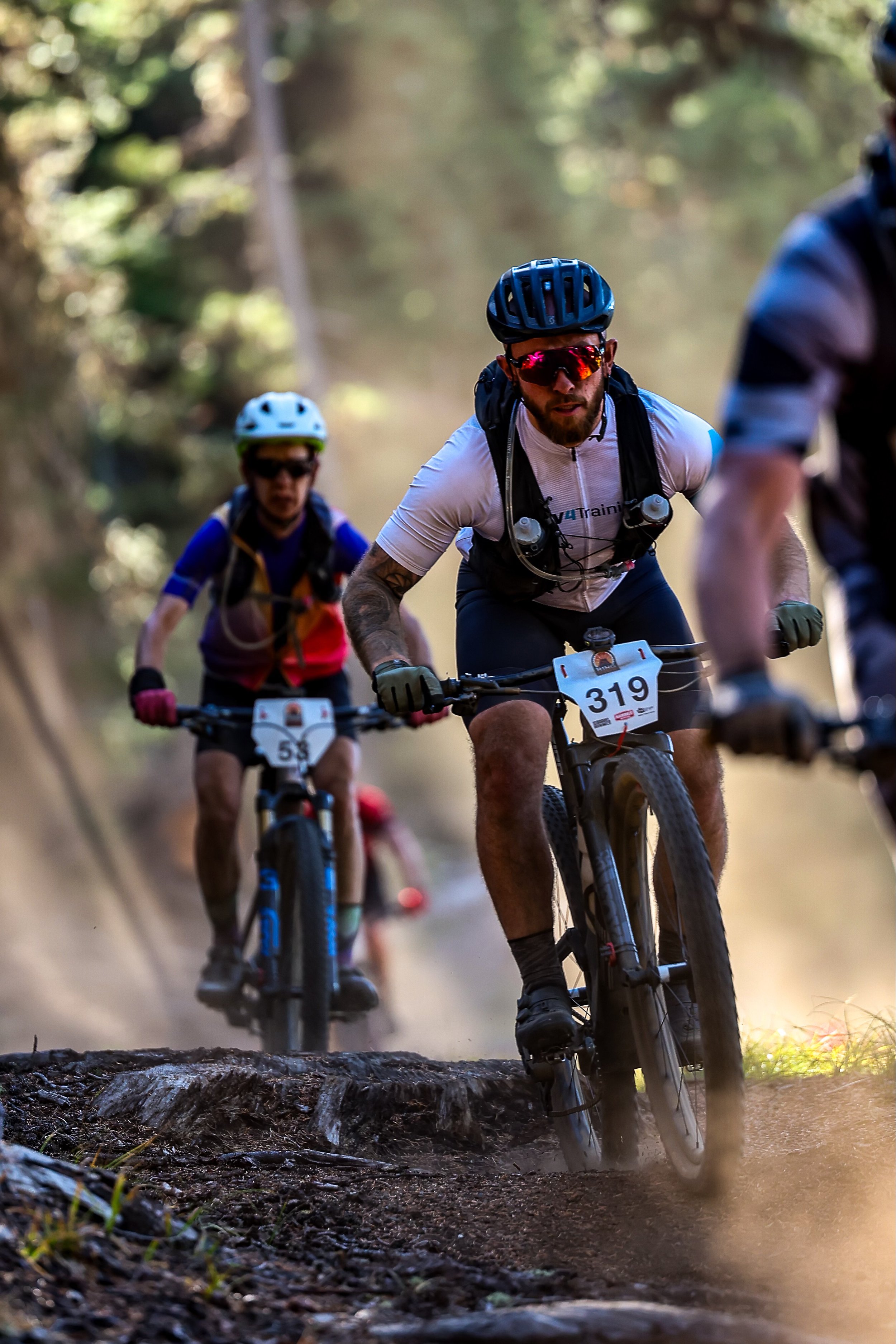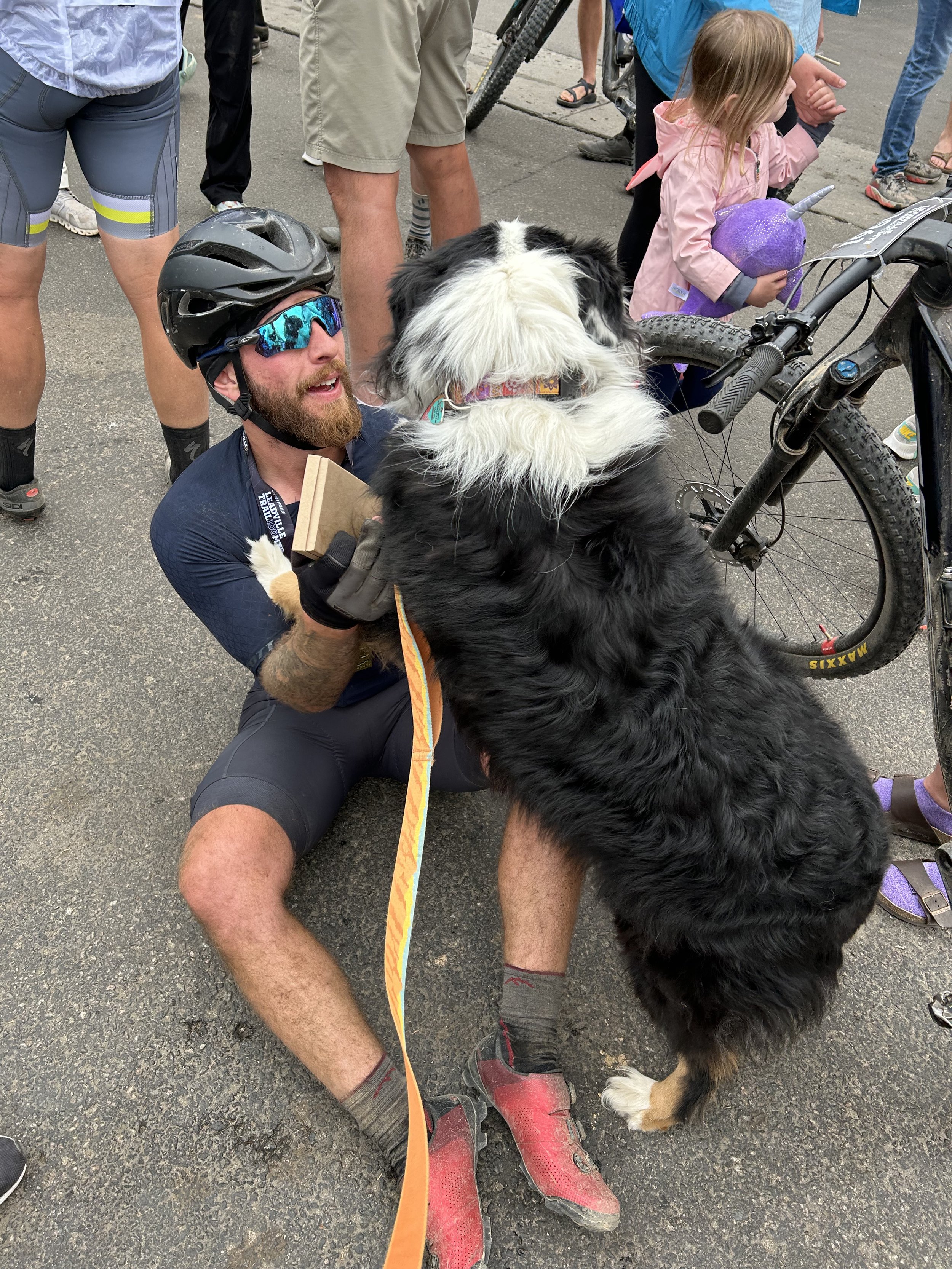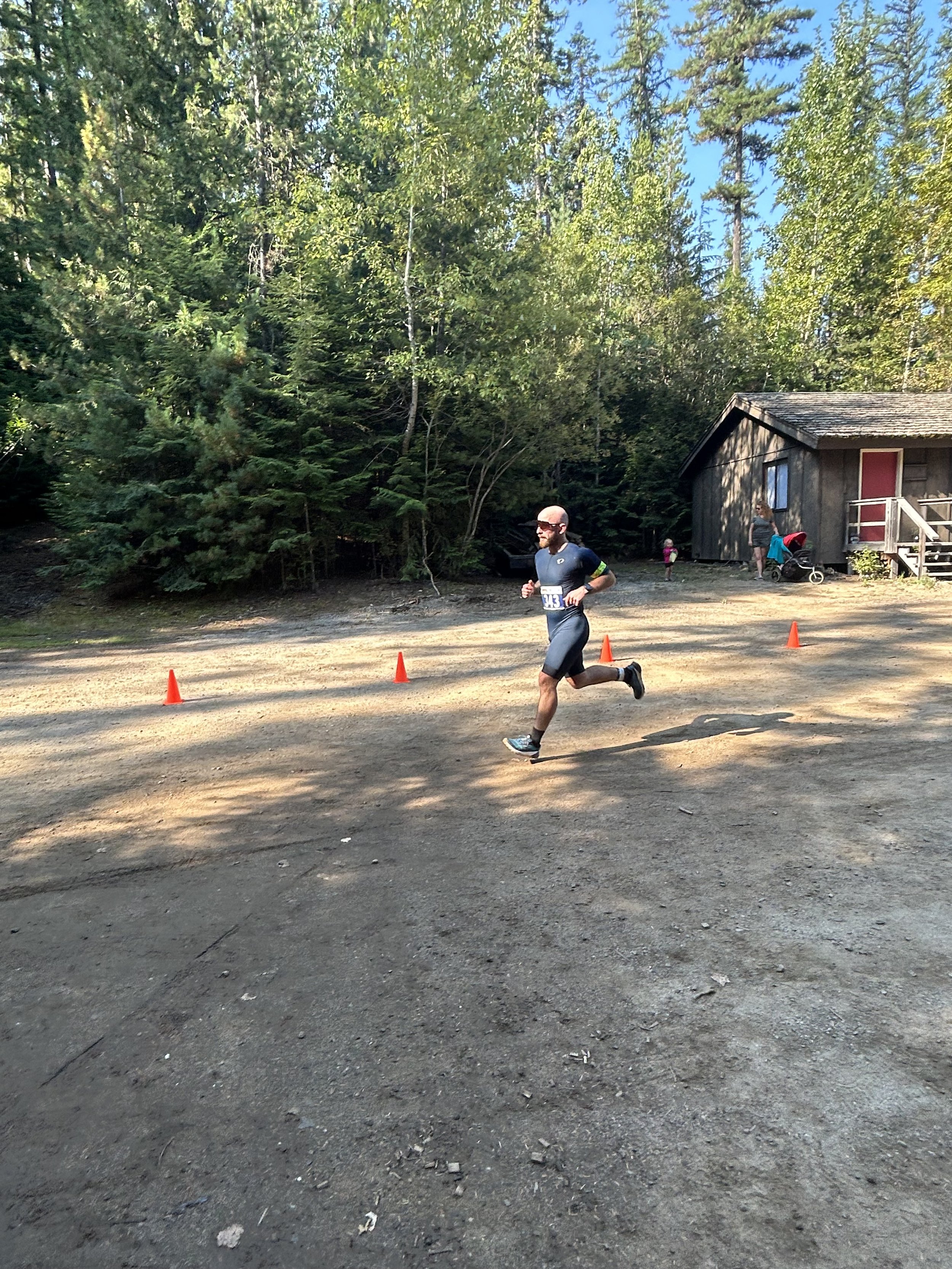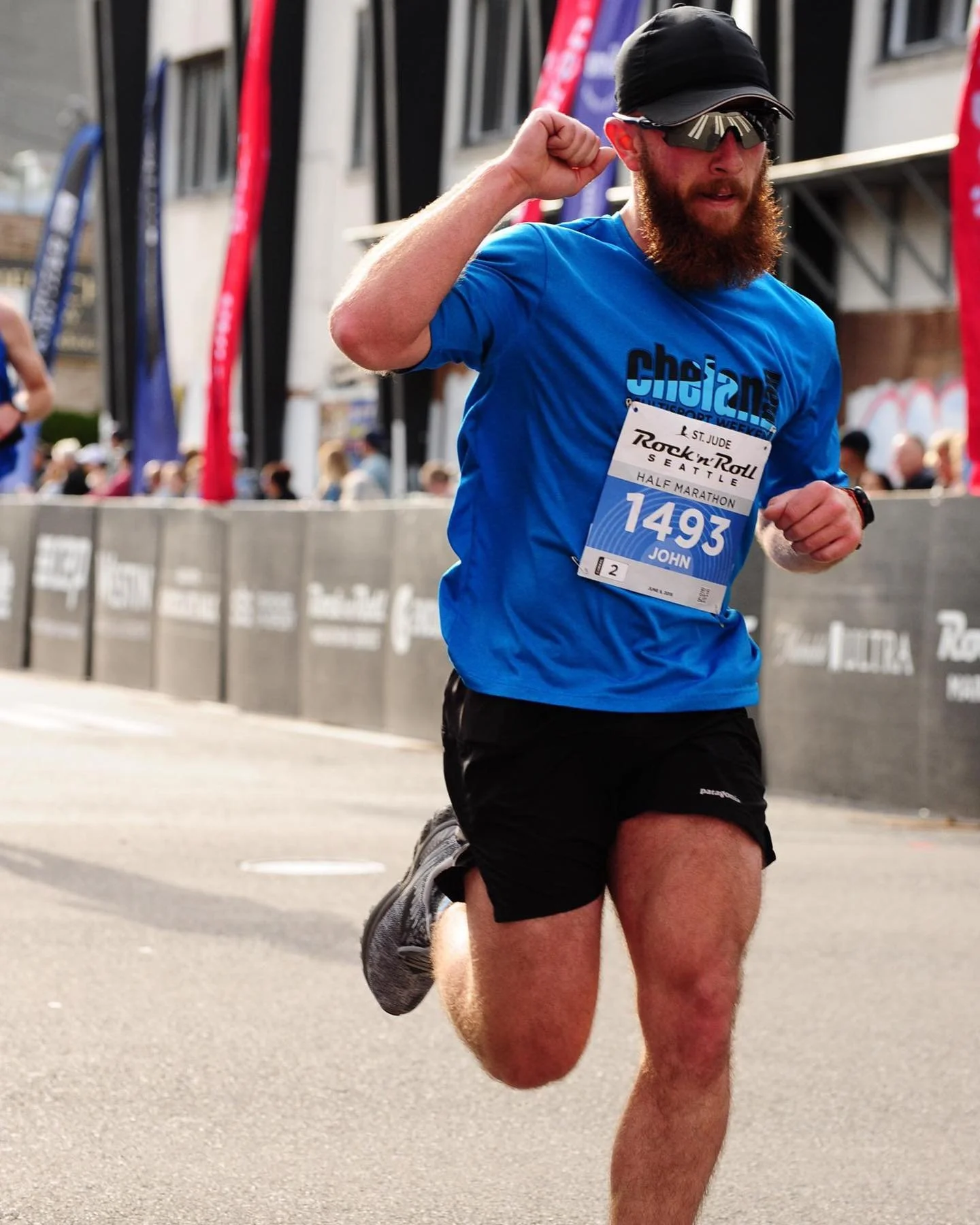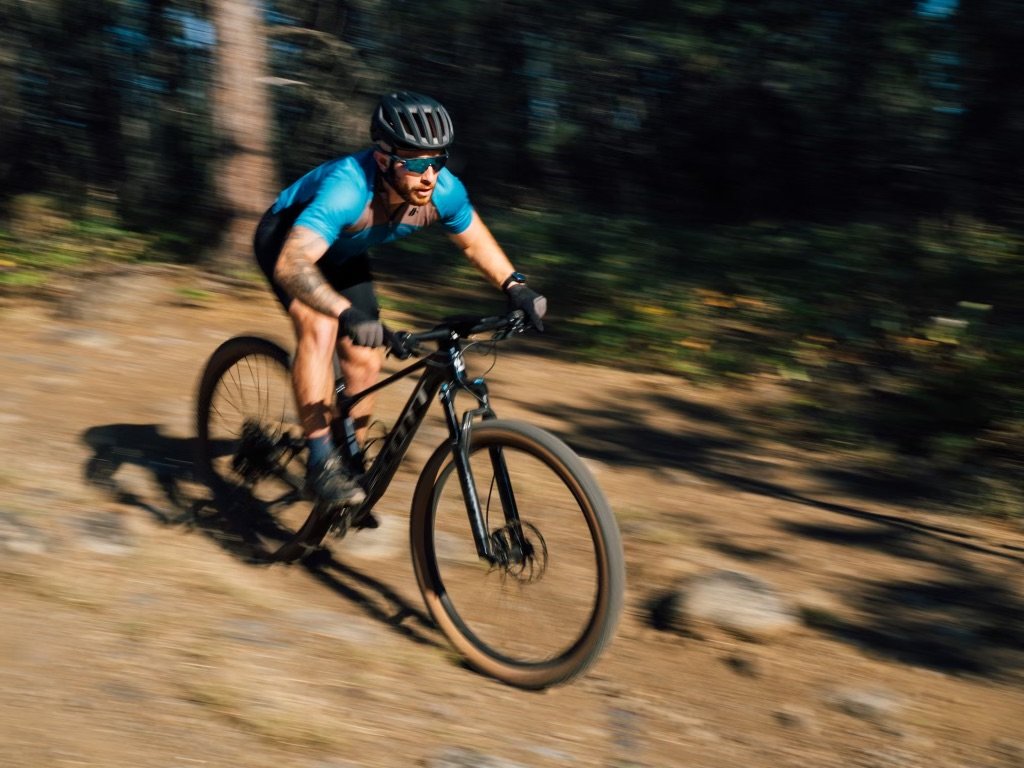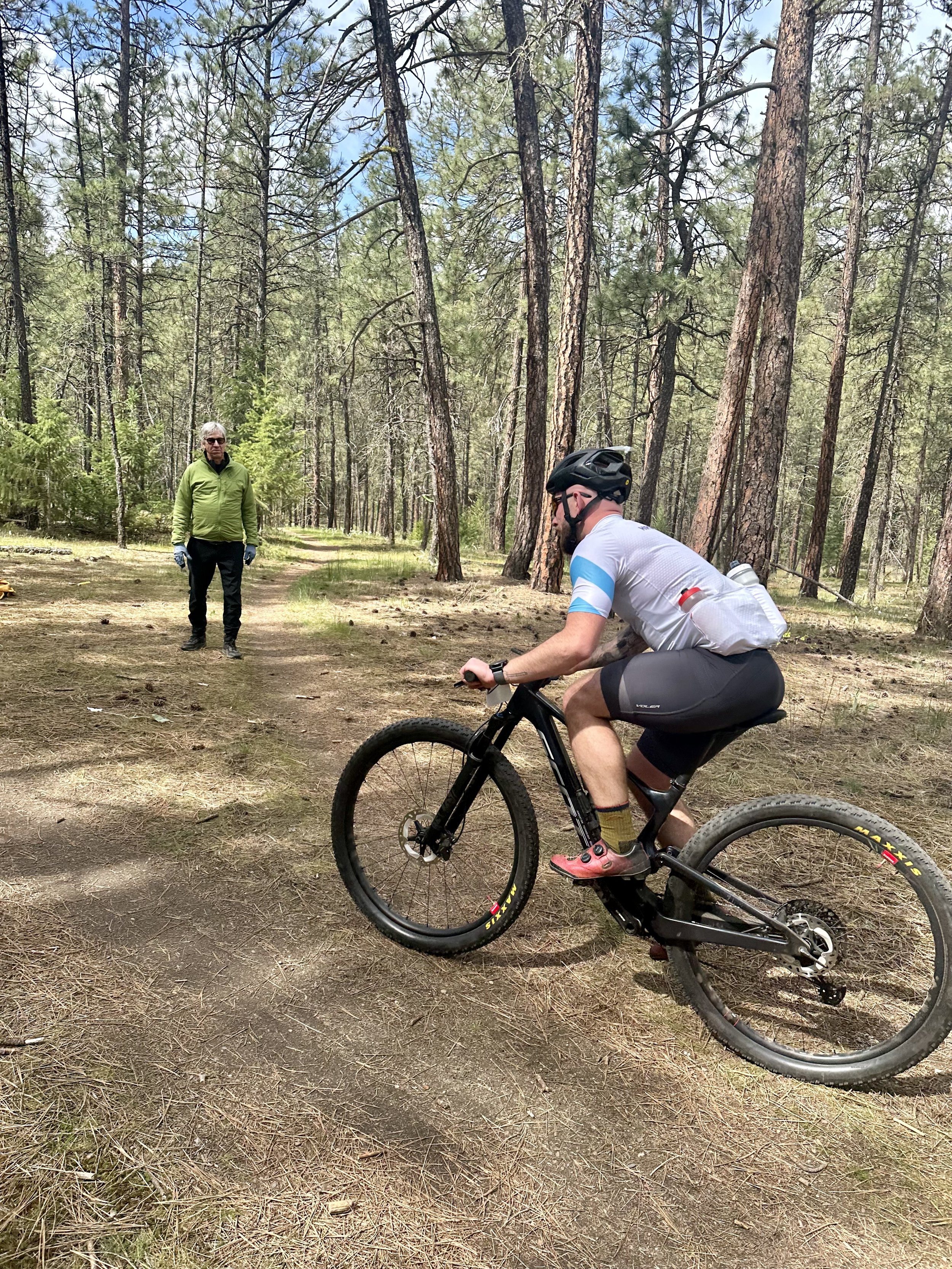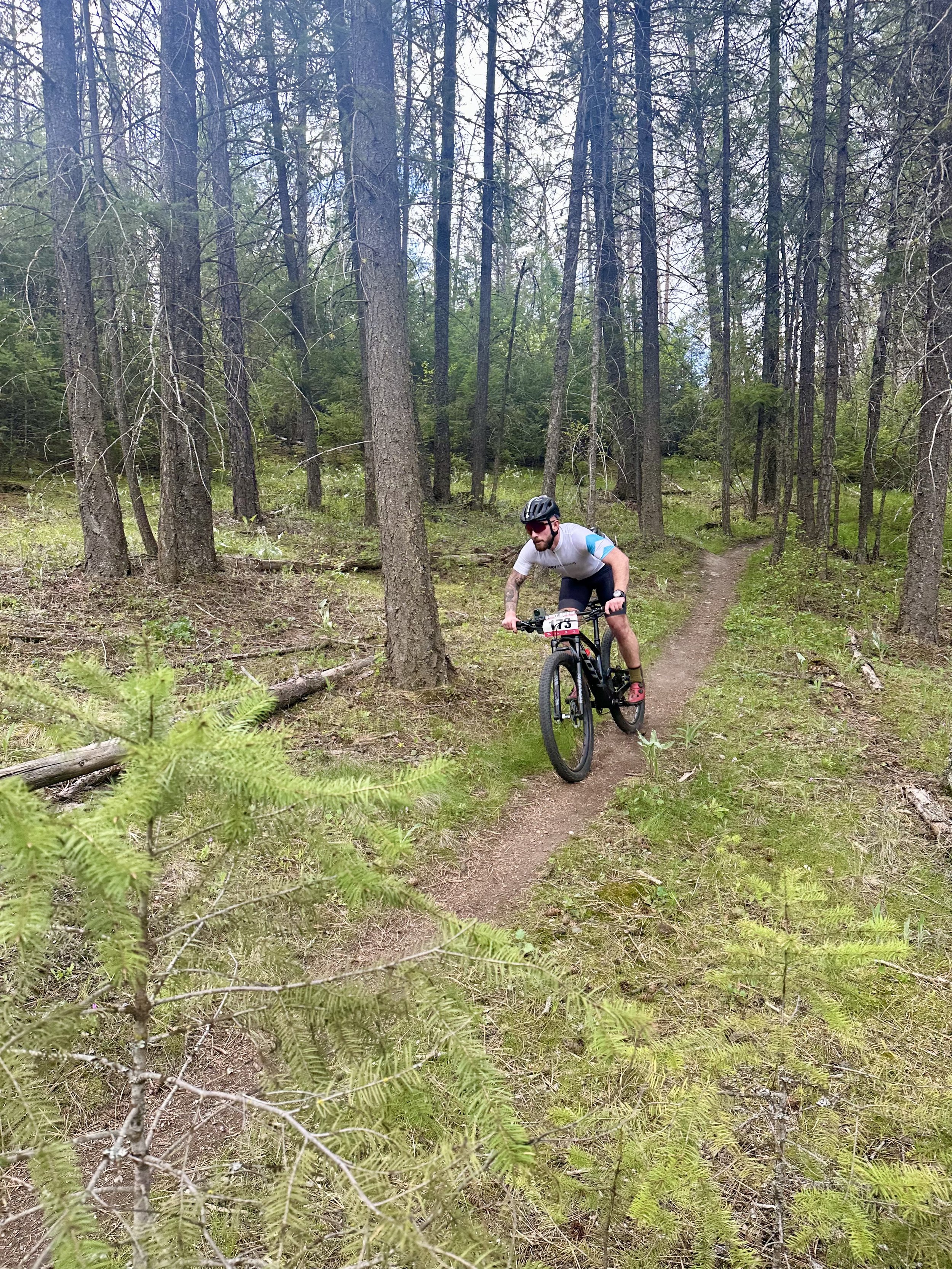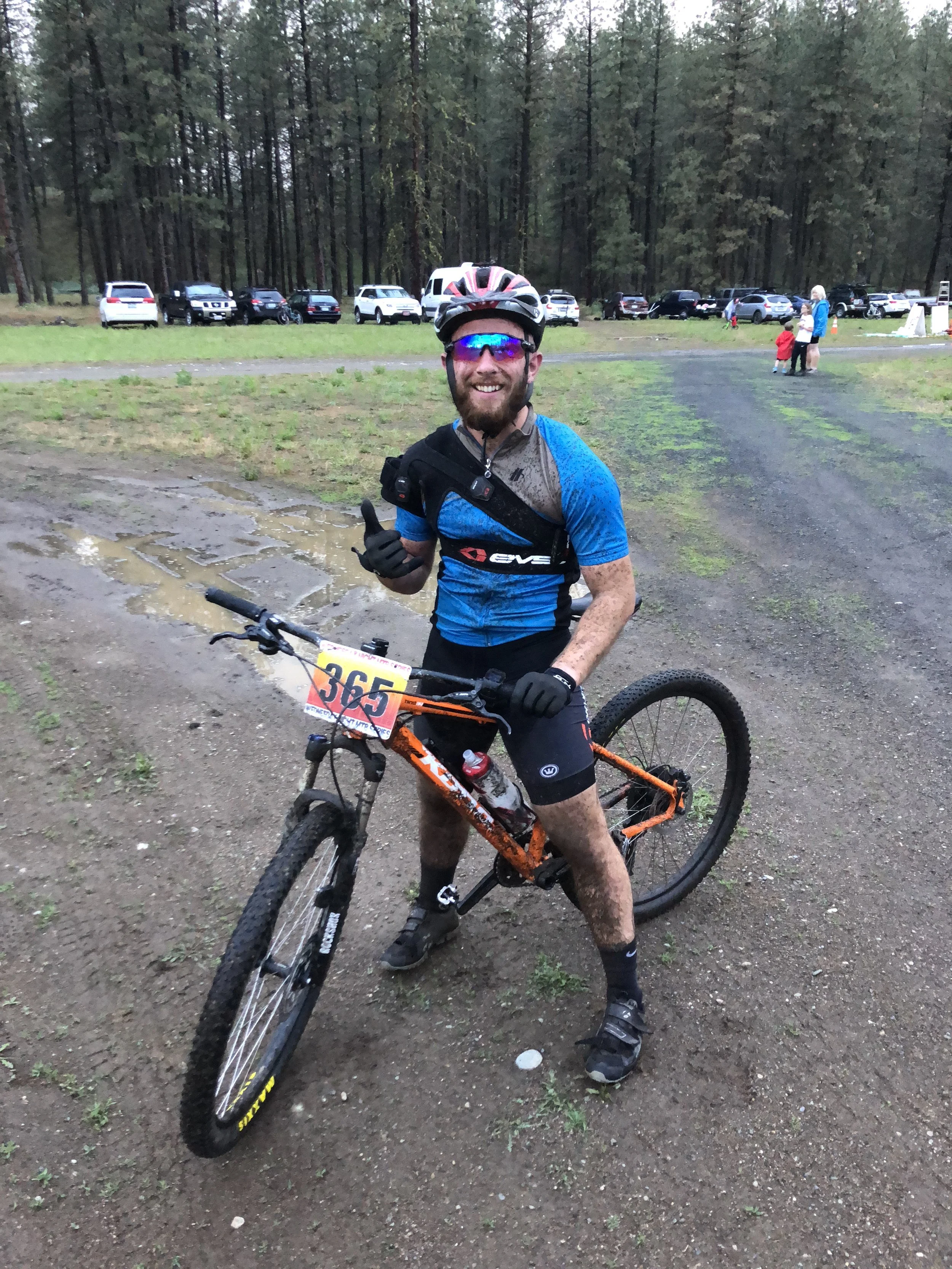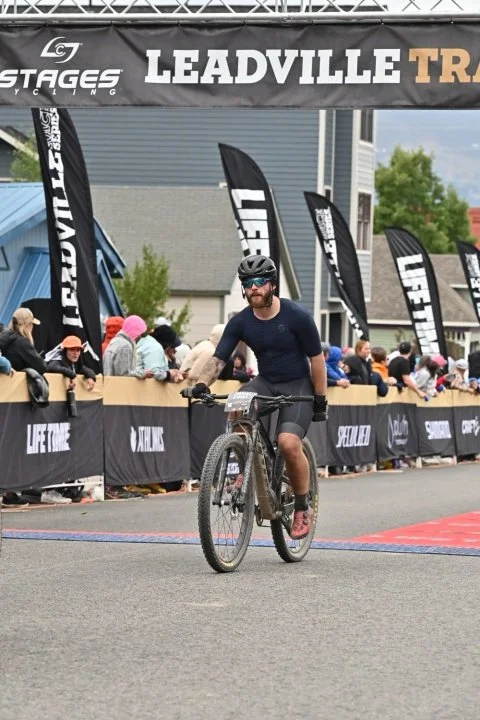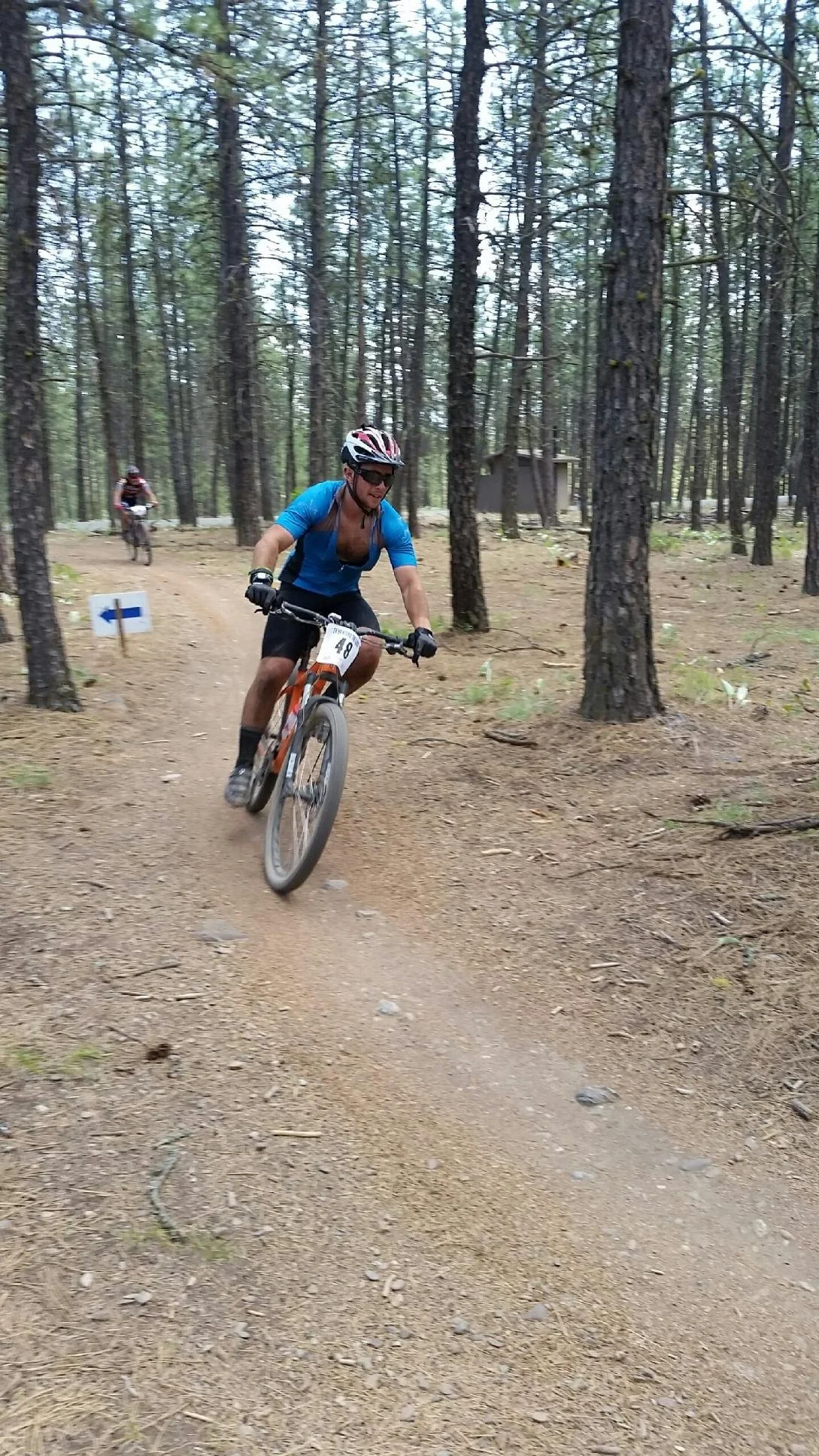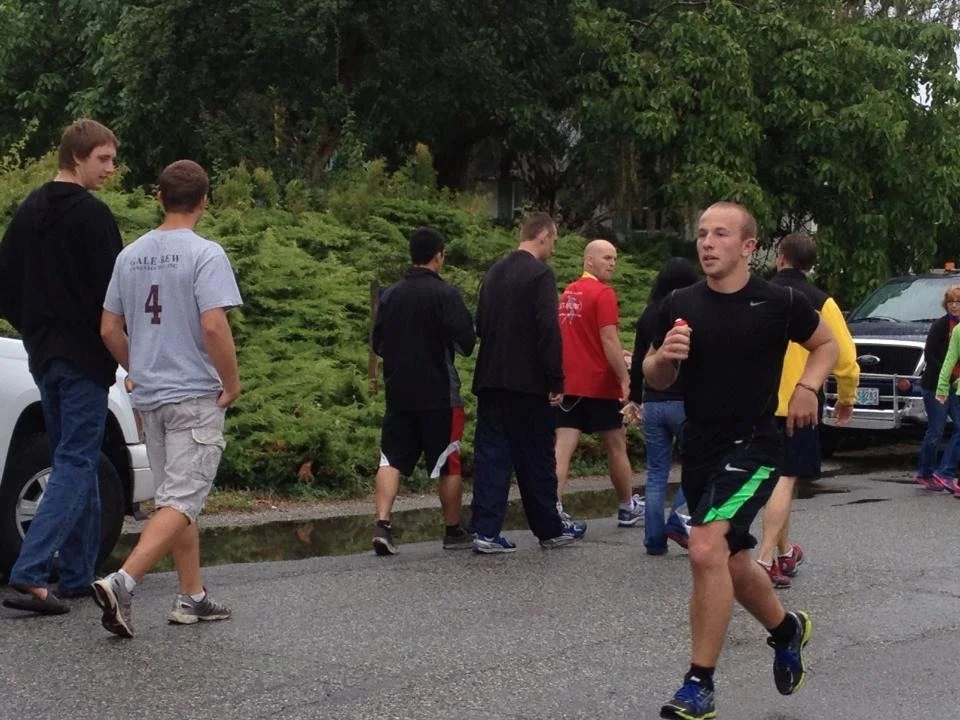
Coaches and healthcare professionals are supposed to have all the answers–yeah?
You’d think that, but my journey competing as an endurance athlete and serving endurance athletes is far from straightforward. I played football for a decade, focused heavily on building strength and muscle mass, and wouldn’t be caught dead running more than a 400-meter race. Heck, I despised climbing hills on my mountain bike because “only the downhill is fun.” I’d go as far as to say that being “strong” was a large part of my identity.
And then life happened
I began my freshman year of college ready for fun and suffered another shoulder dislocation in an intramural football game. Shoulder surgery was my next step, and this ensued a nine-month period of shedding the grip on my “strong” identity. Atrophy, pain, and disability all set in fast. The physical dependency on others was foreign to me. While I couldn’t exercise like I wanted, I was allowed to bike.
Cue my entrance to the endurance sports world
For the first time in a while, I felt like a complete amateur. Sucking wind at a wattage that most leisure cyclists would scoff at, it was humbling to see this other side of my physical fitness. If I’m being honest, I wasn’t sure I wanted to be a physical therapist until this time period. I had told people throughout high school this was my path… but there was something about the humbling experience of rehabilitation and disability that was true confirmation I needed. This parallel between my personal athletic journey and desire to serve those similarly afflicted continues to fuel ventures like Phyziologic PLLC. If life didn’t cost money, many in my life claim that I’d work for free.
It wasn’t until my first marathon in 2013 (pictured right) that I realized this was only the beginning. I maintained this newfound passion for a few years before my next big event: a 2-person team, 24-hour mountain bike relay race.
Progress is slow and that’s okay How it’s supposed to be
Not only was the endurance sport fire magnified after this race, but I also found mission, vision, and purpose in my personal and professional life. I wanted to compete, learn, and train as much as possible. Ever heard the phrase “youth is wasted on the young?” Well, you better believe I wish I could apply my current knowledge and experience with my younger days–– because I quickly encountered the world of overuse injuries for a few years. It’s topsy-turvy, upside-down, and a feeling of quicksand trying to claw out of this cycle. To top it all off, cue shoulder surgery number two in 2018. For some of you reading, this cycle may resonate.
Endurance sports propelled me through my most difficult years, and yet, they were the very thing causing physical disability in my life. That’s an equation that wasn’t mathin’ for me. It wasn’t until near the end of physical therapy school that I began to rebalance my life. Physical fitness characteristics began to lessen their grip on my core identity, paving the way for more values-based identity characteristics. To this day, this list includes compassion, integrity, humility, and perseverance. Eventually, I let my training become more enjoyable and process-oriented. Personal records soon followed, so long that I kept an eye on the big picture when planning workouts. I’m happy to say (* knocks on wood *) that I haven’t had an overuse injury since 2019. There is something to be said about training as much as needed–no more, no less. I’ve seen this approach, in both physical therapy and coaching, propel hundreds of individuals (myself included) to goals seemingly unimaginable. The exact workouts/procedures are never the complicating aspect of a plan; it’s consistency and managing the fact that we’re all human.
Fast forward to the present day, and I’ve further extended my approach guided by these values. I’ve hired my own coach to help assist my own athletic development journey. Even professionals in the rehab/fitness sphere benefit from expert guidance.
What was once a goal to finish a marathon and stay in shape after surgery turned into over a decade of developing my professional and personal practice in sports and injury. How should we shape your story?
John Wehrer
Physical Therapist, Coach, and a helping hand along your personal journey.



